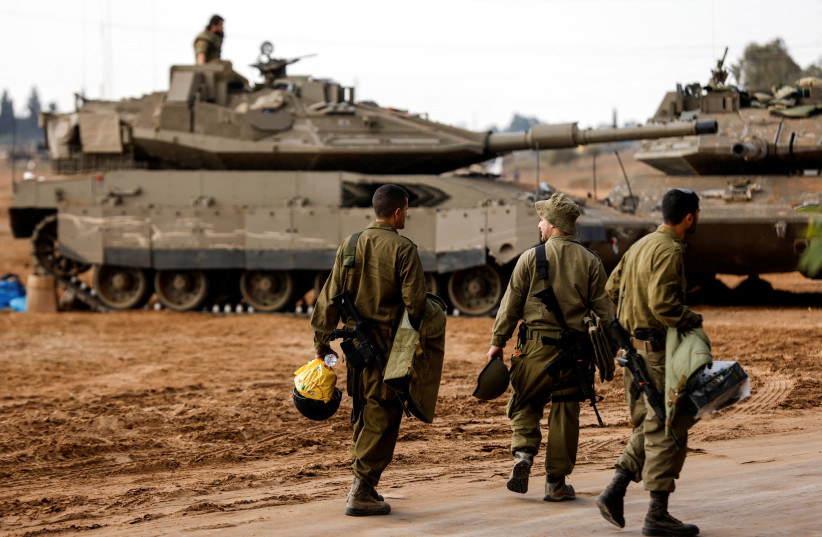IDF Maj.-Gen. Dado Bar Kalifa replaced Maj.-Gen. Yaniv Asur on Monday as head of the Human Resources Command for the IDF – which includes handling the haredi (ultra-Orthodox) draft and reservist crisis issues.
Asur completed a four-year term during which he revolutionized the draft process to make it more accessible to sectors of the population with less serious academic high school programs, as well as to draftees in the periphery who often lacked access to elite intelligence or combat preparatory programs.
Previously, Asur had commanded multiple different forces in the Northern Command, including the Golani Brigade, Egoz special forces, and others.
Bar Kalifa enters the position after being one of the two key generals in the battle over northern Gaza, leading Division 36 from the early days of the invasion, including defeating Hamas forces in the stronghold of Shejaia and other locations.
Following that mission, Bar Kalifa and Division 36 focused on the northern border for much of the rest of the war.

The enlistment crisis
While Asur issued 3,000 summons to haredim in August and the first 1,000 new additional summons to haredim on Sunday, Bar Kalifa will need to manage another 6,000 summons being issued over the next six to eight weeks.
He will also need to manage a crisis among reservists where attendance and motivation have taken significant hits since the war far outlasted initial predictions that it would be mostly over by January or February 2024.
This crisis comes as the IDF must replace over 800 killed soldiers and nearly 6,000 wounded soldiers, along with a larger number of soldiers who have or will later be diagnosed with post-traumatic stress disorder.
